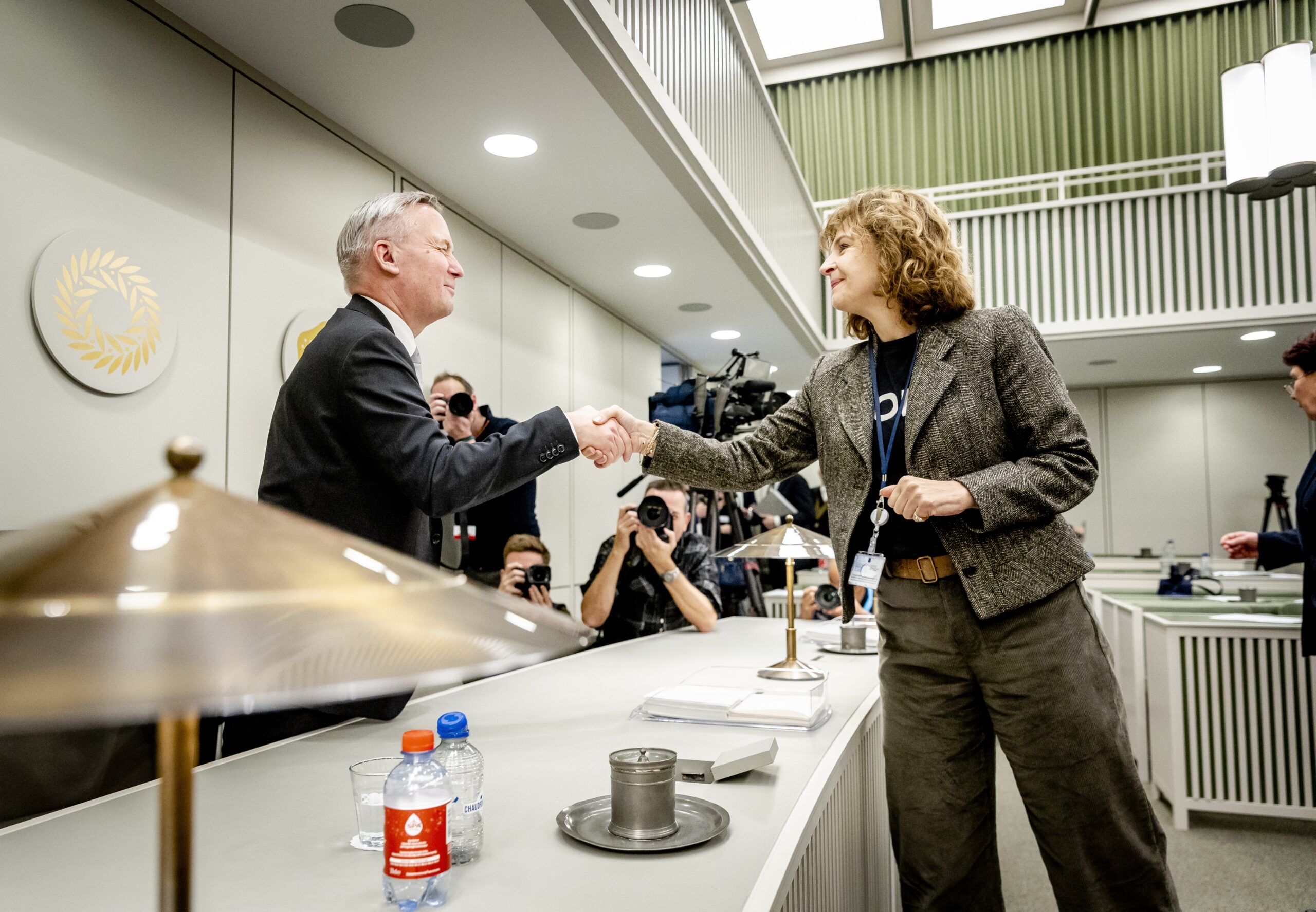VVD Senate leader Edith Schippers quits to focus on CEO role

Former health minister Edith Schippers is stepping down as coalition party VVD’s leader in the Senate, citing the difficulties of combining the role with her job as head of a pharmaceutical company.
Schippers, 60, initially planned to stay on as a senator when she starts work as CEO of Mosadex, which supplies medicines to pharmacies and other healthcare facilities, on January 1.
But in a statement on the party’s website she said she had come to the conclusion that “both my work and the VVD deserve better.”
“Membership of the upper house is a part-time position that senators combine with another job,” she said. “That combination can be very demanding, especially for a party group leader.
“Shortly after the Senate was sworn in in the summer of 2023, Mark Rutte’s fourth cabinet fell. Politics has not got any calmer since then. That has been the case for my position as party leader, with the attendant demands on my time.”
Health minister
Schippers was health minister during Rutte’s first three administations from 2010 to 2017 and was tipped as a potential successor, but left the cabinet at the end of Rutte’s third term to become president of Maastricht-based health and nutrition company DSM.
She will leave the senate at the start of next year, allowing the party to give her seat to another candidate on its list from last year’s elections. The party has already chosen Tanja Klip-Martin to take over as group leader.
As senate leader Schippers played a key role in her party’s decision to support the so-called “spreading law”, which gave the then junior asylum minister Eric van der Burg the power to force local councils to accommodate a fair share of refugees.
The VVD’s support meant that the law was passed in January, just as party leader Dilan Yesilgöz was negotiating the formation of a right-wing cabinet with PVV leader Geert Wilders.
Wilders called the move a “serious problem” after Yesilgöz, who campaigned against the law during last year’s election campaign, failed to persuade the senate to delay its vote until the coalition talks had concluded.
The new cabinet has pledged to repeal the law, but asylum minister Marjolein Faber has said it may remain in force for anther two years until an “asylum emergency measures act” is passed to replace it.
Thank you for donating to DutchNews.nl.
We could not provide the Dutch News service, and keep it free of charge, without the generous support of our readers. Your donations allow us to report on issues you tell us matter, and provide you with a summary of the most important Dutch news each day.
Make a donation